Why this NYC espresso bar keeps its coffee at $2.50 a cup — and staying that way — as others soar past $6
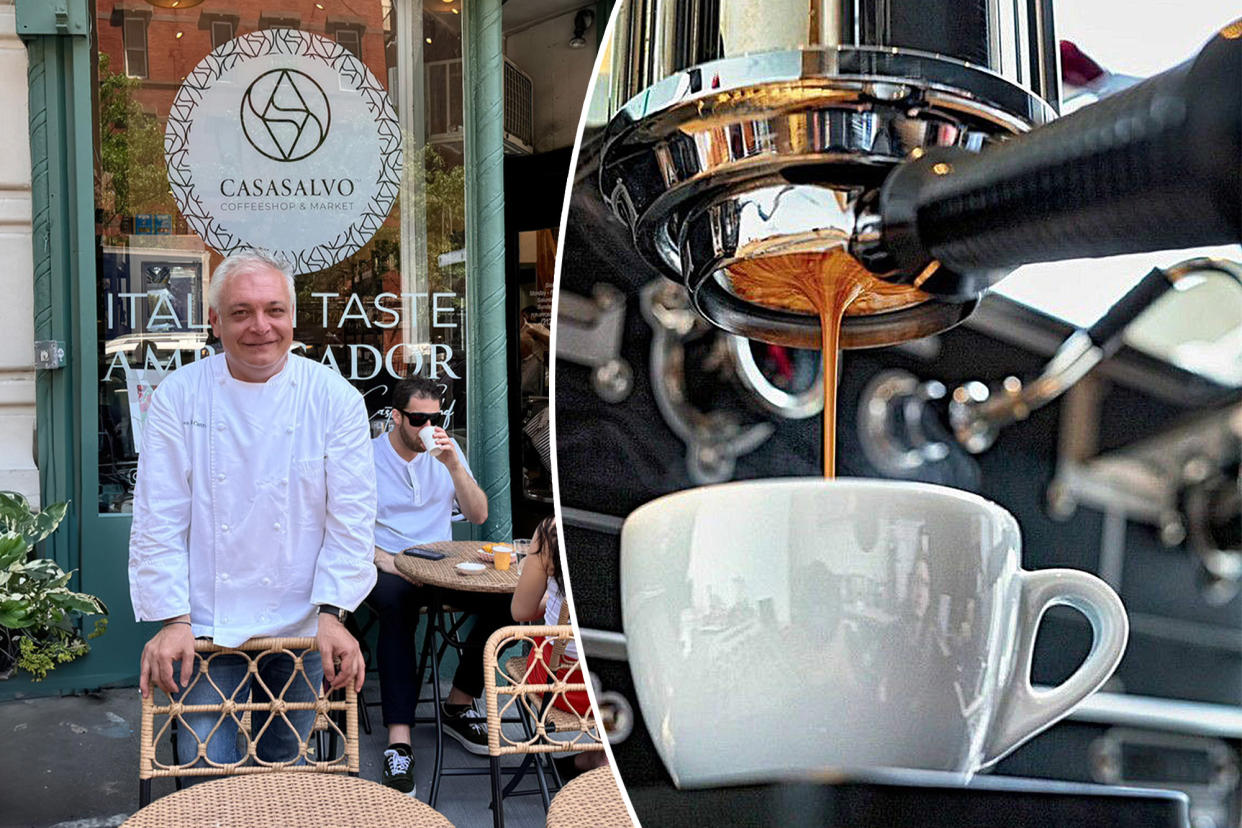
It’s a real jolt to the system.
New Yorkers have never been forced to pay this much for coffee, as inflation forces Gotham’s grounds merchants to jack their prices ever higher in an effort to keep up with the joe-neses.
And yet, a few brave bean depots in the Big Apple are quietly pushing back on the buzzkill trend, serving up espressos, lattes and more for as little as $2.50 — under half the average price for a cup of good coffee in NYC these days.
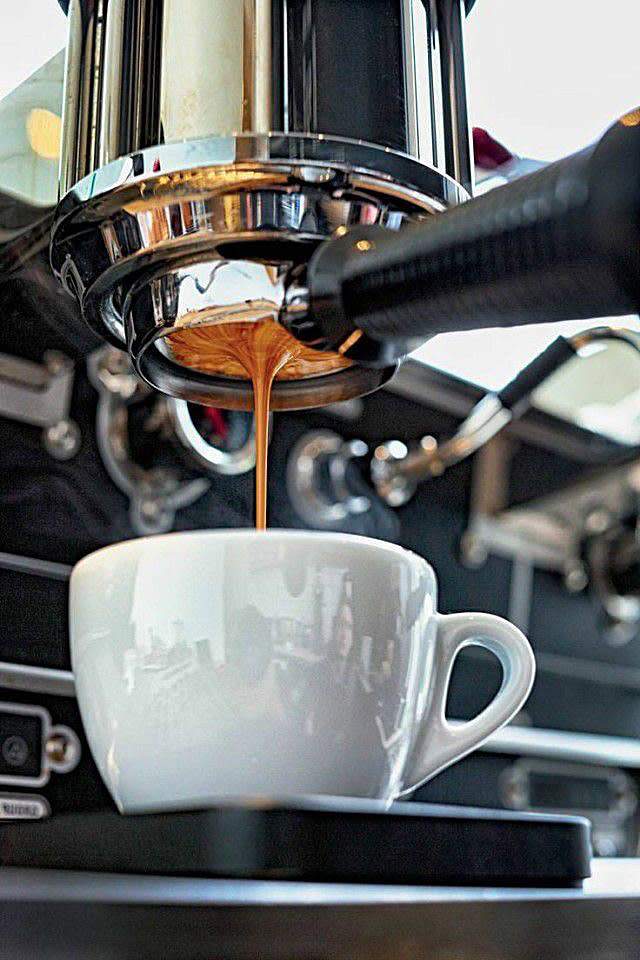
Upper West Side espresso bar Casa Salvo is a brand-new addition to the frugal fraternity, thanks to chef and creator Salvo Lo Castro, who believes that the joy of good java should be experienced by all income brackets.
“I produce coffee, and coffee must be a drink for everyone, not something out of this world,” the Sicily-born foam frother told The Post of his new shop, located at 473 Amsterdam Ave. at 83rd Street.
At Casa Salvo, every drink on the menu — from a quick espresso to a lavish cappuccino with pistachio cream — costs $2.50. That’s the same as an Americano at 7-Eleven, and half of the average at Starbucks nowadays.
How can Lo Salvo — who has logged 30 years in the business, working everywhere from five-star hotels to the Vatican — manage to charge bodega prices for primo people diesel?
He’s a brand ambassador for Dokito, a Rome coffee supplier, which allows him to procure good beans — a curious blend of 80% Arabica, 10% pistachio and 10% Ethiopian — on the cheap.
But there’s more to the story than a mutually beneficial business arrangement. The idea came about after Lo Castro, who moved to the US in 2022, found himself longing to replicate the coffee culture back home, where espresso often costs 1 euro and is typically served in a flash, clearing the way for the next customer.
“In Italy, the price of the coffee is cheap,” Lo Castro explained. “And you arrive, drink the coffee and go.”
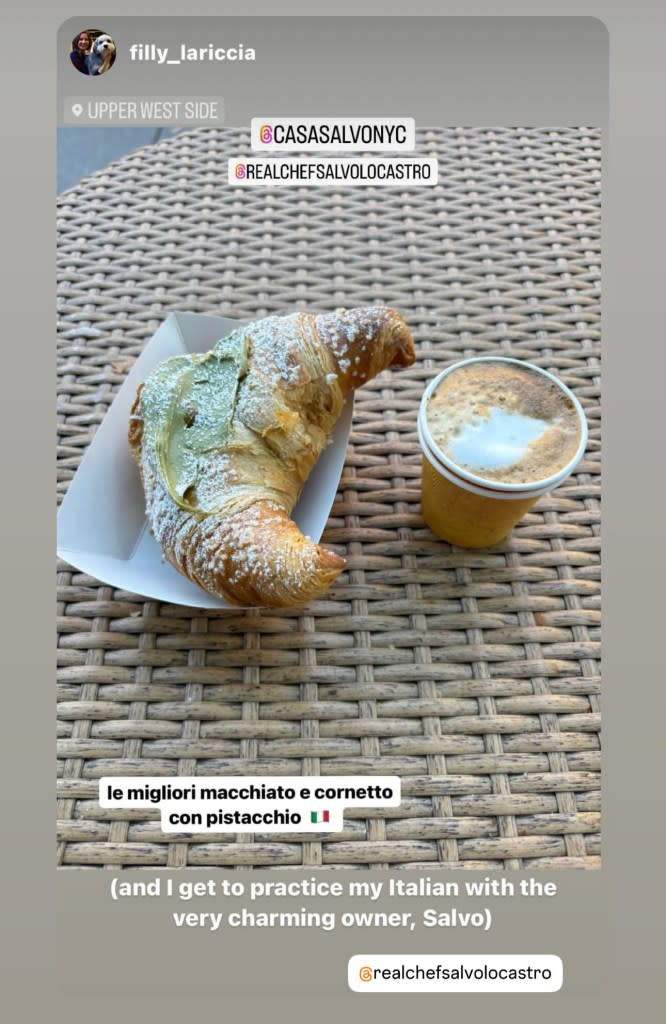
“I don’t want people staying one hour for one coffee,” he added, joking that he’d charge $15 a cup if that was the case. (Laptop brigade beware.)
In fact, the venue itself doesn’t have indoor seating, only six tables outside, seating 12.
Casa Salvo arrives on the scene as the average cost of coffee in the city recently shot up to between $6 and $7 a cup after add-ins, tax and tip, Eater reported.
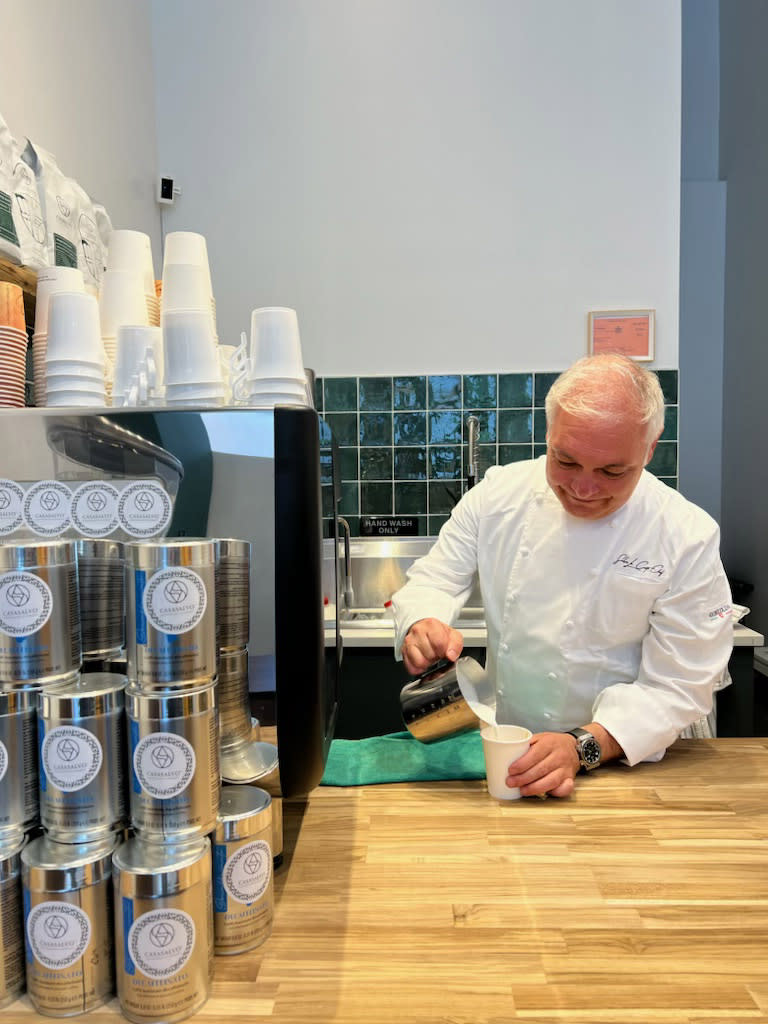
This price hike is due to several factors, including rising prices for rent and goods, and erratic weather impacting crops in coffee-producing meccas like Vietnam.
A drought impeded the Southeast Asian nation’s harvest of robusta coffee beans, which are used in a lot of traditional espresso blends and instant coffees, increasing latte costs worldwide.
Then, there are the labor costs. In April, Starbucks upped its already inflated prices in California to offset the costs incurred by the Golden State’s $20 minimum wage mandate.
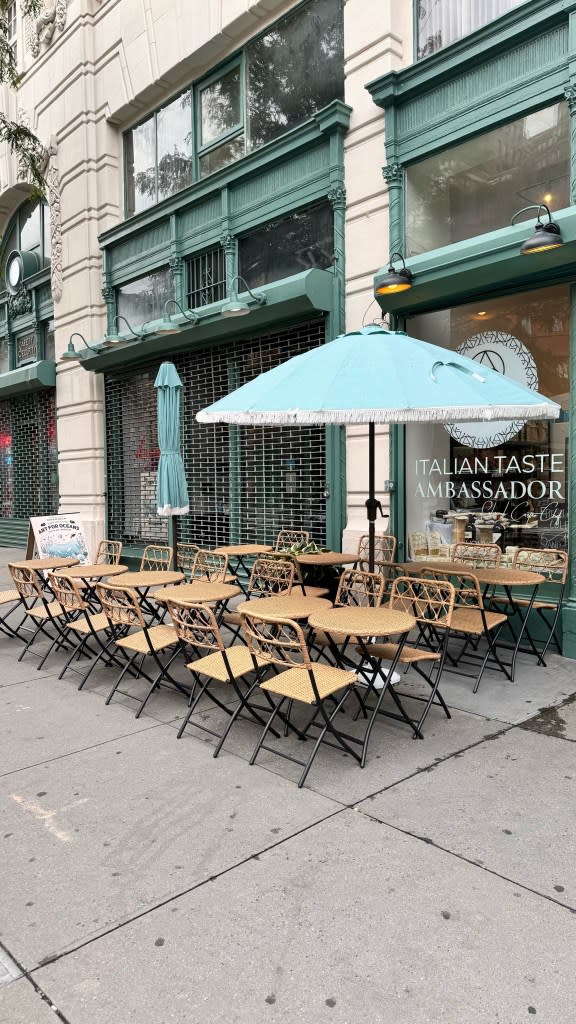
Just as in Italy, the key to Casa Salvo’s success will be volume, according to Lo Castro. Fortunately, neighborhood caffeine hounds are already beating a path to his door.
Since opening in May, the seasoned pro said he’s “served 7,500 coffees” at Casa Salvo, which also doubles as a specialty market with affordable pastas, olive oils, balsamic vinegar, prosciutto and other goods.
And instead of the usual crumbly muffins and petrified scones, drinks here are complemented by Italian pastry like cannoli and bombolini, the filled doughnut beloved by Italians. There are also pistachio cream-slathered cornetti, baked fresh all day long.
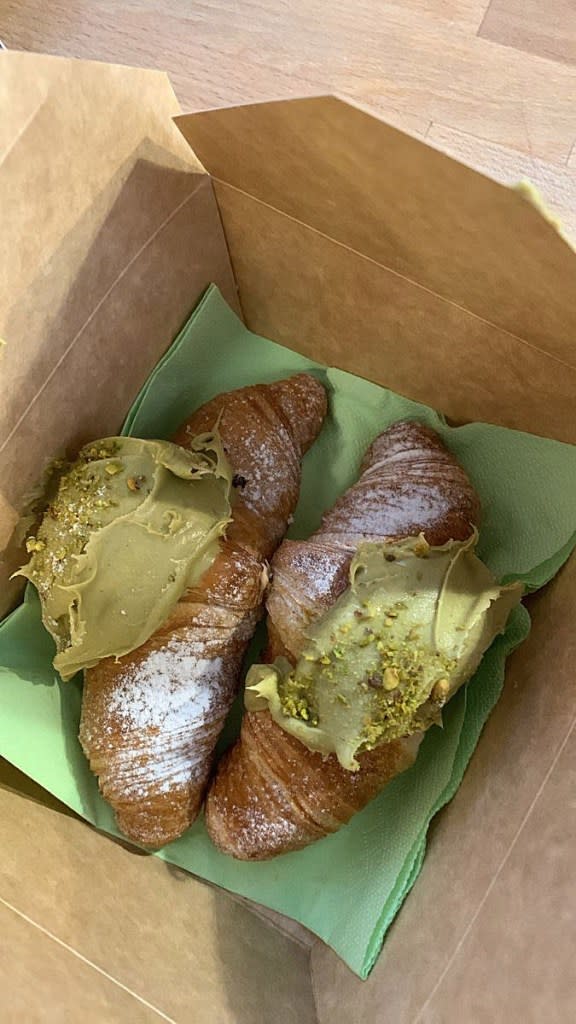
Initial reviews on Yelp are largely positive, with one customer describing the espresso as “nothing short of perfection — rich, smooth, and aromatic.”
Casa Salvo’s strategy might just work — it wouldn’t be the first macchiato mogul in town to compete on price.
Israeli-owned Matto Espresso built a firm following in the city and nearby New Jersey hawking coffee drinks for $2.50 a cup — the price is now $3, but the company now boasts 35 locations, mostly in Manhattan.
And at downtown’s legendary Porto Rico Importing Co., an over 100-year-old coffee roaster, you could snap up a cafe au lait for a couple of bucks until recent pressures raised the price to $3.77 — still a relative bargain in a neighborhood like the West Village.
Lo Castro, who plans to open a second branch in July near Columbus Circle, said he won’t be raising his prices for the foreseeable future.
“I will keep the set prices — even for the openings throughout 2025,” he promised.











